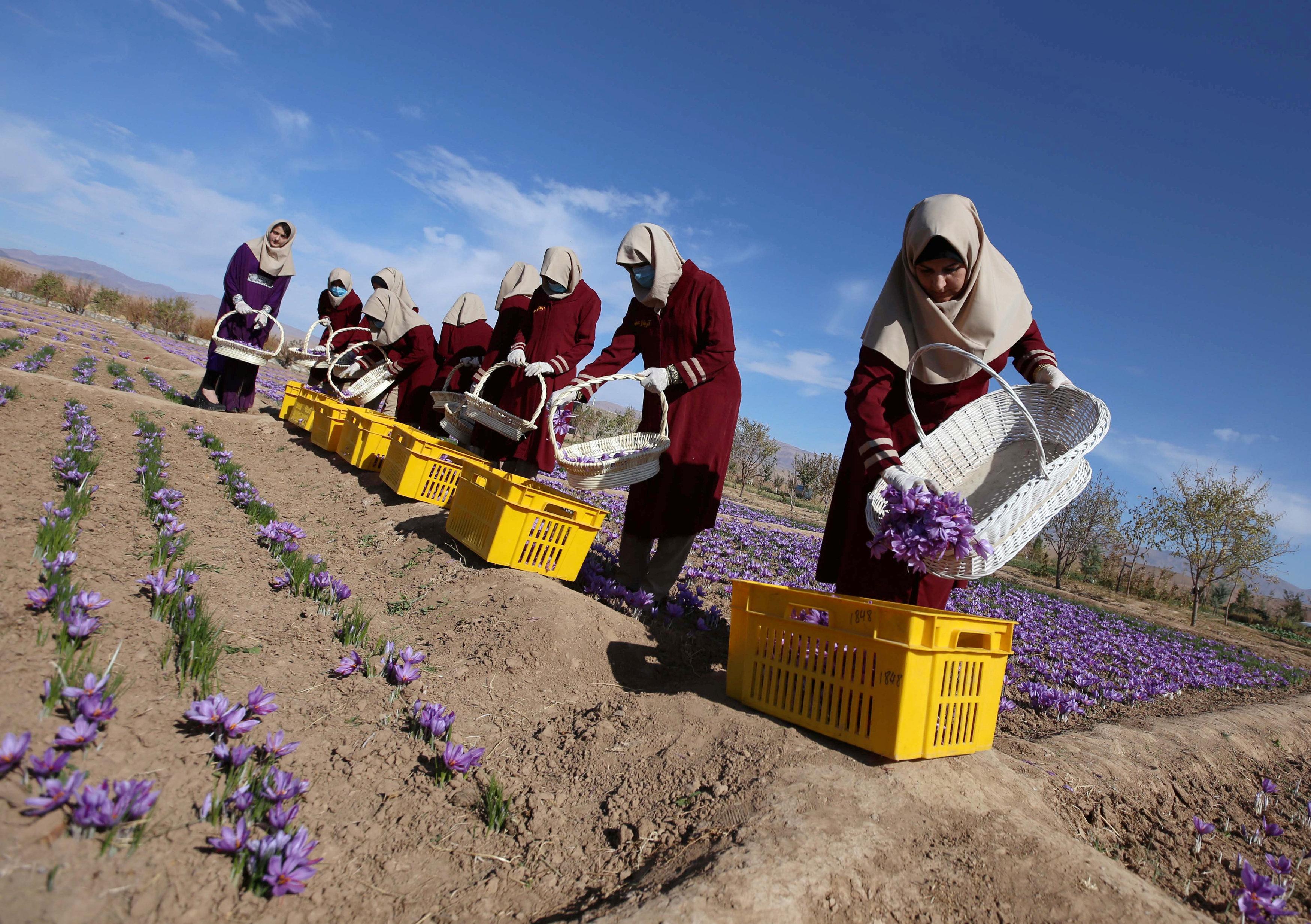
Saffron Harvest Season In Iran
Iranian Saffron, which is also known as the “red gold”, is a magical ingredient in Persian culture, from aromatic foods and colorful desserts, to the physical and spiritual medicine.
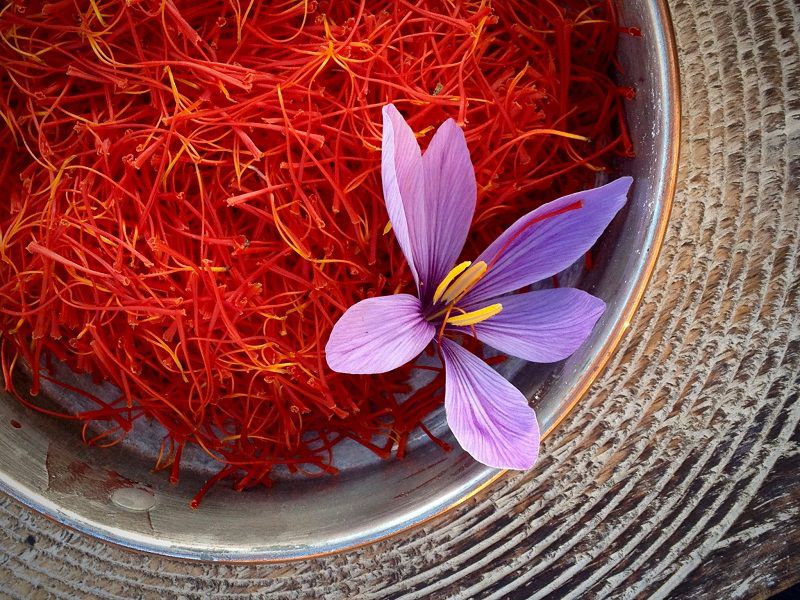
Iran, Spain, Afghanistan, Portugal, France, Hong Kong, the Netherlands, Greece, China, Germany and Switzerland are the major exporters of Saffron in the world. Iran’s share of saffron exports in 2016 stood at 42%, while Spain (29%), Afghanistan (8%), Portugal (5%), France (3%), and other countries of the world (13%) ranked next.
Watch this great video from National Geoghraphic channel describing about this precious spice.
Iranian Saffron Cultivation
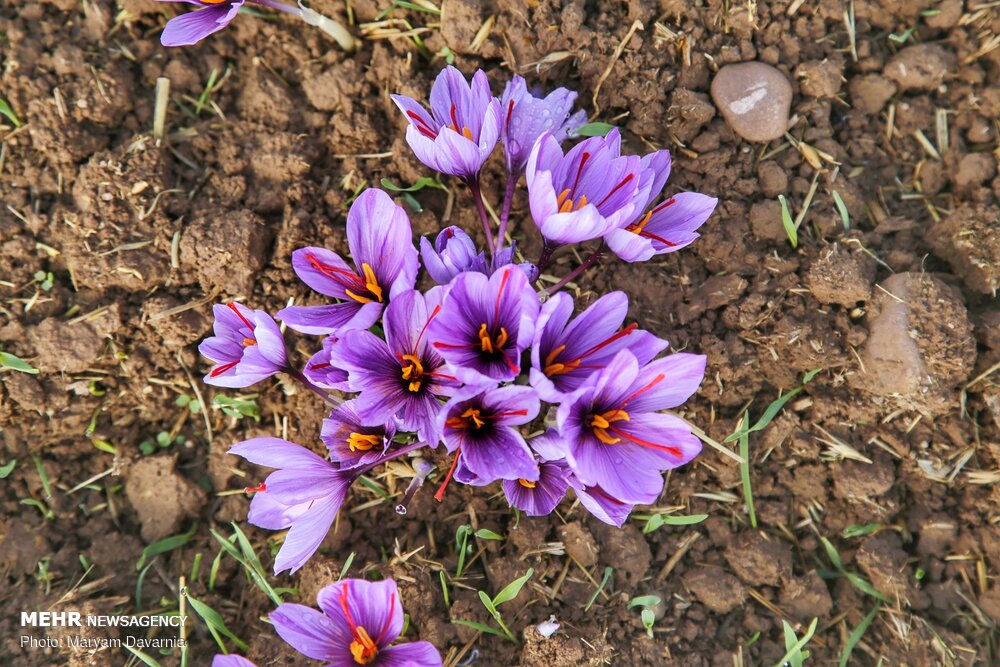
Cultivating and growing saffron takes so much effort, time and only those who love Saffron farm works can do the job. To harvest each ounce of Red Sargol of Saffron, 7000 purple flowers need to be cultivated! The saffron flower should be hand-picked and the stigmas should be taken precisely. To replenish saffron, and restore enough nutrients in the soil, it’s a must to plant beans and grains for 7-10 years.
In which part of Iran is the Saffron grown?
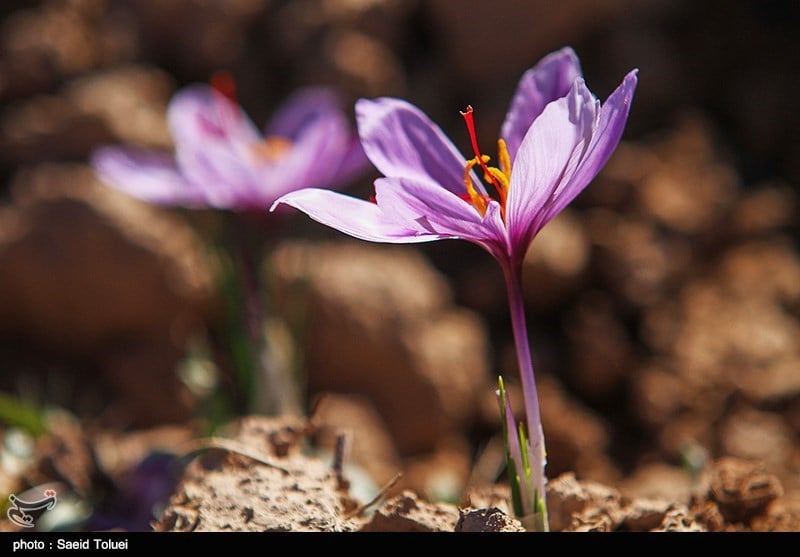
Iranians are the biggest producers of saffron in the world (85% of the world’s saffron grown in a year, roughly about 390 tons!) The number is huge, considering that every 500 saffron stigmas weighs only one gram. In Iran, Saffron is grown mostly in Khorasan and Fars province, in a few scale it is also grown in Qom and Esfahan. You can find, the highest quality of Saffron in Ghaenat (Qaenat) in Khorasan Province and also Estahban in Fars Province.
Saffron Harvest Season
Every year, the saffron harvest season begins in early November. While most other vegetation are gone, the bright purple flowers cover the fields and create an outstanding landscape in dry regions in Iran. Major saffron producers of Iran are located in the east side of the country. If you are curious about where saffron comes from, remember the cities of Gonabad, Torbat Heydariyeh, Taybad, Khaf, and Qaen. All of these cities are located in Khorasan region and their harvest season begin around November 1st, lasts about two, at most three weeks.
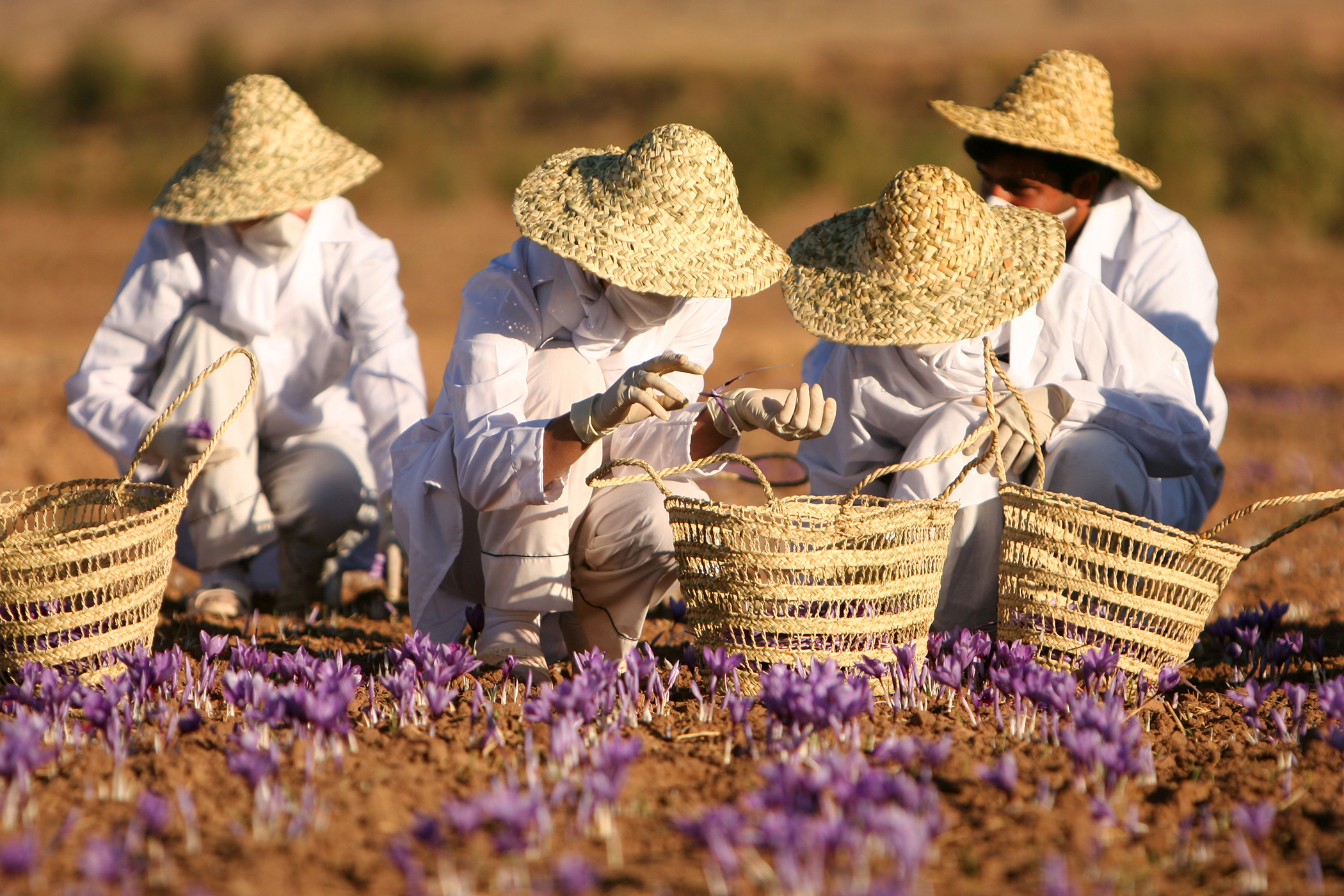
Harvesting of saffron begins before sunrise, when flowers have still not opened up. Men and women head to the field and start picking the flowers as fast as they can, by the first rays of the sun, the flowers magically bloom in a sudden act. Work stops at around 9 AM when the flowers are taken to a shaded area to seperate. Everyone sits around a huge pile of flowers and carefully takes the three stigmas out. Remember the 500 stigmas for a gram of saffron? It takes about 167 saffron flowers to produce only one gram. That is why saffron is so precious.






Leave a Reply
Your email address will not be published. Required fields are marked *
All Comments (0)